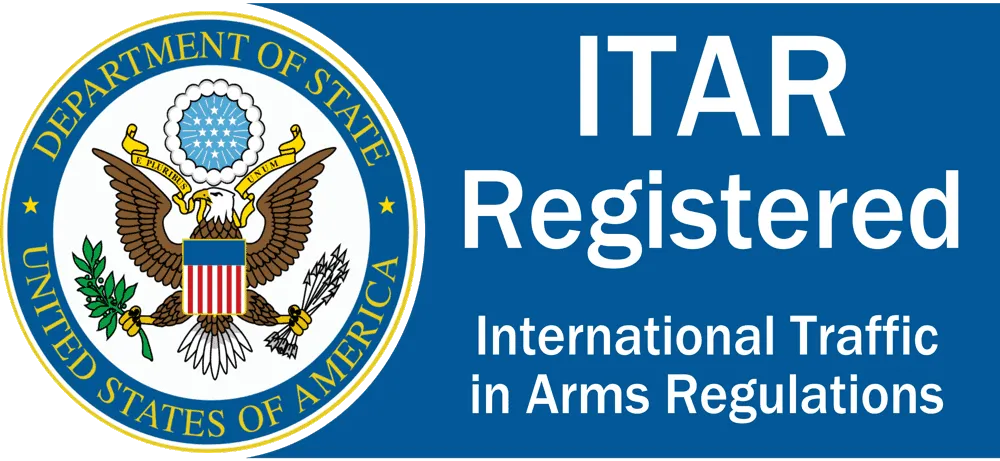It depends on whether the U.S origin defense articles including tangible items, components, spare parts, or technical data transferred, re-transferred, or re-exported by a foreign person. In short, being Non-US, or being located outside of the U.S. is not enough for ITAR to leave you alone. Additionally, once the defense articles exported from the U.S does not mean that the importer is free to re-export the items to another country. Re-exportation is still subject to ITAR regulations. Check our summary on how ITAR applies to non-US persons below.
The International Traffic in Arms Regulations (‘ITAR’) is the main regulation on export, re-export, or retransfer of defense articles and services governed by 22. U.S.C. 2778 of the Arms Export Control Act (AECA) and the Executive Order, dated 2013, on Administration of Reformed Export Controls. ITAR provisions are regulated within 22 Code of Federal Regulations 120-130 and implemented by the Department of State.
The article 121, the United States Munitions List (‘USML’), enumerates the defense articles and clarifies what the defense articles are and subject to ITAR regulations. ITAR provisions are based on the subject item rather than parties of the transaction. As a result, a foreign person may be required to comply with ITAR while doing business in the defense market.
The Term ‘Foreign Person’ for the Purposes of ITAR
The article 120.16 defines the term “foreign person” as any natural person who is not a lawful resident or is not a protected individual under relevant US Legislation. As it is stated by the same article, the definition also includes ‘any foreign corporation, business association, partnership, trust, society or any other entity or group that is not incorporated or organized to do business in the United States’, besides international organizations, foreign governments and any agency or subdivision of foreign governments. In other words, if your company is not incorporated in the U.S, or you are not a U.S citizen or green card holder, for the purposes of ITAR, you are a “Foreign Person”.
According to the article 120.1-c, a foreign person may not receive an export license or other approval unless it is a foreign governmental entity in the U.S. That is true, ITAR says foreign persons may not receive an export license, but ITAR requirements are beyond the export licenses. ITAR requires, a foreign person to receive a re-export or re-transfer approval; or prior approval for brokering activities. A Quick Tip: How to know if an ITAR regulation applies to a foreign person? The article 120.14 states that the provisions that do not exclusively refer to a foreign person or U.S. person applies to both.
Re-Export and Re-Transfer Under ITAR
As it has been mentioned above, foreign persons are required to have a license for re-export, re-transfer or brokering activities with regards to defense articles enumerated in the USML. Pursuant to the article 120.19, an actual shipment or transmission of a defense article from one foreign country to another foreign country, including the sending or taking of a defense article to or from such countries in any manner shall be regarded as re-export. Releasing or otherwise transferring technical data[1] to a foreign person who is a citizen or permanent resident of a country other than the foreign country where the release or transfer takes place is deemed as re-export as well. Moreover, transferring registration, control, or ownership of any aircraft, vessel, or satellite subject to the ITAR between foreign persons are also considered as re-export.
The Article 120.51 defines re-transfer as a change in end use or end user, or a temporary transfer to a third party, of a defense article within the same foreign country or a release of technical data to a foreign person who is a citizen or permanent resident of the country where the release or transfer takes place.
In sum, if you or your company in a business where a U.S origin defense articles involved, you need to be diligent about complying with ITAR. So, the question is how a foreign person comply with ITAR.
Complying with ITAR
As it is stipulated by the article 123.9, foreign persons must obtain written approval from the Directorate of Defense Trade Controls (‘DDTC’) before re-transferring or re-exporting a defense article to any end-user, end-use, or destination other than as stated on the export license. DDTC expects from applicants to determine the specific end-user, end-use, and destination prior to submitting such application. Applicants must review all readily available information while determining the matter.
ITAR contains an exceptional clause for re-export or re-transfer of a defense article, which includes a U.S. origin component, to several destinations[2]. Accordingly, such a transaction may take place without a prior written DDTC approval if certain conditions are met. Nevertheless, even then the person re-exporting the defense article must provide a detailed written notification to the DDTC within 30 days following the re-export.
The U.S. Authorities attribute great importance to tracking defense articles. ITAR brings responsibility to inform end-user and all consignees when ITAR controlled defense articles are re-exported.
The article 127regulates violations and penalties for violations. Accordingly, not complying with ITAR restrictions would cause civil and criminal penalties, including fines and debarment[3]. Civil penalties are implemented in accordance with the articles 127.10128 of ITAR. On the other hand, the Department of Justice may evaluate the issue from the perspective of criminal law. Besides, ITAR violations may cause denial/revocation of licenses and other export authorizations, compliance oversight and the loss of business opportunities.
The U.S export regime built on three major regulations: ITAR, EAR, and OFAC. All three are complex set of rules, that a company must be aware of if the company dealing with a U.S origin goods, products, technology, information etc. In this article we briefly explained how ITAR regulations may apply to Non-US companies. If you are wondering if you need to comply with any of these three regulations, the good news is if you are an ITAR compliant you are automatically deemed EAR compliant as well. The bad news is if you do not need to comply with ITAR, we still need to check if EAR applies.
[1]The term technical data is defined via 120.10th Article and ITAR. Accordingly, all kinds of information regarding a defense article that is contained by ITAR may be accepted as technical data. However, the knowledge that is available to the public is not considered as such information.
[2]The content is limited as NATO, NATO agencies, a government of a NATO country, or the governments of Australia, Israel, Japan, New Zealand, or the Republic of Korea.
[3]A debarment can simply be explained as a legal exclusion from ITAR controlled transactions.
Author: Şafak Herdem & Kaan Erdoğan



